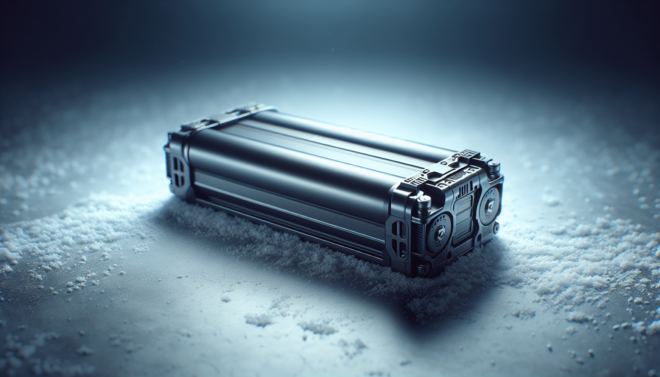Introduction
So you have finally taken the plunge and invested in a drone. Congratulations! It’s an exciting new hobby, but one thing you may not have considered is how to properly maintain your drone’s battery to ensure its longevity and performance. In this article, we will discuss some tips and tricks on how to maintain your drone’s battery health over time.
Understanding Lithium Battery Basics
Before we dive into the specifics of maintaining your drone’s battery health, let’s take a moment to understand the basics of lithium batteries. Your drone’s battery is most likely a lithium polymer (LiPo) battery, which is a common type of battery used in drones due to its high energy density and lightweight properties.
So, what does this mean for you?
Lithium batteries have specific characteristics that you should be aware of. For example, they do not have a memory effect, which means you don’t have to fully discharge them before recharging. However, they do have a limited lifespan, typically around 300-500 charge cycles. Understanding these basics will help you take better care of your drone’s battery.
Best Practices for Drone Battery Maintenance
Now that you have a basic understanding of lithium batteries, let’s discuss some best practices for maintaining your drone’s battery health over time. Follow these tips to ensure that your drone’s battery performs optimally and lasts longer.
Keep Your Battery Cool
Heat is one of the biggest enemies of lithium batteries. High temperatures can reduce the battery’s lifespan and performance. Make sure to store your drone batteries in a cool, dry place away from direct sunlight or heat sources. When charging your batteries, avoid leaving them in hot environments, as this can damage the cells.
Avoid Overcharging or Discharging
Overcharging or fully discharging your drone’s battery can be detrimental to its health. Most drones come with built-in protection systems that prevent overcharging or discharging, but it’s still a good idea to monitor your battery levels and avoid pushing them to the extreme limits. Try to keep your battery between 20-80% charge for optimal performance and longevity.
Store Your Battery Properly
When you’re not using your drone for an extended period, it’s important to store your batteries properly. Ideally, you should store them at around 50% charge in a cool, dry place. Avoid storing your batteries fully charged or fully depleted, as this can cause stress on the cells. Check your battery manufacturer’s guidelines for specific storage recommendations.
Inspect Your Batteries Regularly
It’s essential to inspect your drone batteries regularly for any signs of damage or swelling. If you notice any bulging or deformation in the battery pack, stop using it immediately and dispose of it properly. Regularly check the connectors and wires for any signs of wear and tear. Keeping your batteries well-maintained will ensure their safety and longevity.
Cycle Your Batteries Occasionally
While lithium batteries do not have a memory effect, it’s still a good idea to cycle them occasionally. Discharge your battery to around 20% and then fully recharge it to help calibrate the battery’s capacity measurements. This process can help maintain the accuracy of your battery’s charge level indicator and improve its overall performance.
Charging Tips for Your Drone Battery
Proper charging practices are crucial for maintaining your drone battery’s health and performance. Follow these tips to ensure that you’re charging your batteries correctly and efficiently.
Use the Right Charger
Using the manufacturer-recommended charger is essential for the longevity of your drone’s battery. Avoid using third-party chargers that may not have the proper voltage or current specifications. Always check for compatibility and use the designated charger that came with your drone to avoid damaging the battery.
Charge at the Right Temperature
Charging your batteries at the right temperature is crucial for their health and performance. Most lithium batteries charge best at room temperature, around 20-25 degrees Celsius. Avoid charging your batteries in extreme temperatures, as this can reduce their efficiency and lifespan. If you notice any abnormal heat during charging, stop immediately and check for any issues.
Follow the Charging Guidelines
Every drone battery has specific guidelines for charging, including the recommended charge rate and voltage. Make sure to follow these guidelines closely to avoid overcharging or undercharging your battery. Overcharging can lead to overheating and reduced battery life, while undercharging can result in decreased performance. Always refer to your battery manufacturer’s instructions for the best charging practices.
Avoid Fast Charging Too Often
While fast charging can be convenient, it’s not always the best option for your drone’s battery health. Fast charging generates more heat, which can be damaging to lithium batteries. If you need to charge your battery quickly, use fast charging sparingly and opt for regular charging when possible. Fast charging should be reserved for situations when you need a quick turnaround, not as a regular charging method.
Disposing of Old or Damaged Batteries
Eventually, your drone’s battery will reach the end of its lifespan and will need to be replaced. It’s essential to dispose of old or damaged batteries properly to prevent any potential hazards or environmental harm. Follow these guidelines for safely disposing of your old drone batteries.
Find a Battery Recycling Center
Most communities have designated battery recycling centers where you can dispose of old or damaged batteries safely. These centers are equipped to handle lithium batteries and ensure that they are recycled or disposed of properly. Do not throw your old batteries in the regular trash, as they can pose a fire hazard or harm the environment.
Contact the Manufacturer for Disposal Instructions
If you’re unsure of how to dispose of your old drone batteries, contact the manufacturer for specific instructions. Many drone manufacturers have recycling programs in place to help customers properly dispose of their old batteries. They can provide you with information on where to send your old batteries for recycling or disposal.
Never Disassemble or Tamper with Batteries
It’s crucial never to disassemble or tamper with your drone batteries, especially if they are old or damaged. Lithium batteries contain hazardous materials that can be harmful if exposed. If you need to transport or store old batteries, make sure to tape the terminals to prevent short circuits or accidents. Always handle old batteries with care and follow proper disposal guidelines.
Conclusion
Maintaining your drone’s battery health over time is crucial for optimal performance and longevity. By following the best practices outlined in this article, you can ensure that your drone’s battery remains in top condition and provides you with hours of flying enjoyment. Remember to keep your batteries cool, avoid overcharging, store them properly, and inspect them regularly. By taking care of your drone’s battery, you’ll extend its lifespan and get the most out of your aerial adventures.

